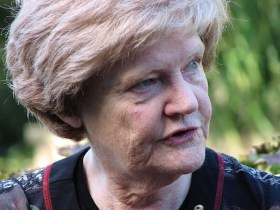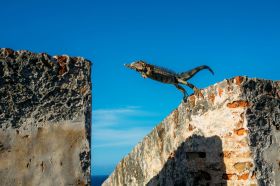The relationship between sponsorship and climate activism has again been in the news. Players of professional tennis, football, cricket and netball have exercised their muscle recently and pushed back against sponsorship deals for their codes and representative teams by companies operating in the extractive industries.
Santos, Alinta Energy and Hancock Prospecting have all had the plug pulled on their deals with, respectively, Tennis Australia, Cricket Australia and Netball Australia, due to pressure exerted by current and former players, their allies and fans in the community. Decisions ‘not-to-renew’ long-standing sponsorship deals have been met with warnings of the sky falling in by some in the mainstream commentariat. The quick pick-up of the Netball Australia $15 million sponsorship by Visit Victoria reduced that noise to a whimper with the swish of a pen on an equivalent cheque.
This shift in activism reflects a new generation of players whose futures, and those of their sports, are dependent upon climate mitigation. For example, this year, Australian Cricket Captain, Pat Cummins, helped establish Cricket for Climate, an organisation assisting grassroots clubs to reduce their carbon output in the face of predictions that global warming will make outdoor sport impossible within 20 years. This new climate activism has repercussions for, and is partly reflected in, the arts and cultural milieux.
Sports-washing and art-washing are agents of destruction in the sponsorship universe. They are similarly tentacular in the way they reach into the very soul of art and sport and, in the case of the arts, create any number of toxic pressures and responses in a sector with scant financial resources.
For years, extractive capitalism has been a key component in the production and promulgation of the arts in Australia, implicating them in the values and operations of its various industries. Through board representation, event sponsorship and partnership arrangements, Australian arts agencies, arts training and tertiary institutions, major cultural institutions and presenting organisations have become deeply entwined with the practices of extractive capitalism.
Our understanding of the extent to which fossil fuel industries have captured governance, sponsorship and partnership in the cultural sector owes much to the 2018 artwork Maps of Gratitude by former artist, now Richmond candidate for the Greens in the upcoming Victorian election, Gabrielle de Vietri, whose visualisation demonstrates a disturbing nexus. It weaves a dense matrix – scan the boards of major cultural institutions and presenting organisations, you’ll most likely find a representative of the extractive industries – the weight of which (in)directly places an impost on governance and curatorial decision-making, while conversely deferring the benefit of a ‘social licence’ on the relevant companies. Recently writer Penny Tangey has pulled together a ‘non exhaustive list’ of fossil fuel sponsorship across the arts and sports in Australia, which details over 450 relationships and counting.
Over the last few years, the presence of art-washing in the sector has been made explicit by artist-led activism that has caused sponsorship deals to come unstuck in a number of key contests. These can be seen in the context of broader arts activism going back to the seminal Sydney Biennale boycott in 2014 and the Artists’ Committee direct action against the NGV in 2018 both over the issue of detention of asylum seekers, and the 2022 artist boycott of Sydney Festival due to Israeli embassy sponsorship.
Unsurprisingly, where an economy is dominated by the resources sector you will find proportional investment in the arts and cultural sector – Western Australia is a good example. So many arts organisations in the state receive financial support from fossil fuel companies, with those that make a point of refusal – such as Revelation Perth International Film Festival and PVI Collective – standing out. Oil and gas company, Woodside Energy has its fingerprints all over the sector; Fortescue, Chevron, BHP, Rio Tinto et al are more selective but no less penetrative.
Woodside has recently been the subject of two campaigns to divest it of its sponsorship deals with, respectively, Perth’s Fringe World Festival and WA Symphony Orchestra. With controversial projects like the Scarborough gas project requiring approval, Woodside desperately needs social licence to operate.
Produced by ARTRAGE, Fringe World has been sponsored by Woodside since 2012, an arrangement that from 2018 has been the subject of protest by a coalition of artists and activists. In January 2021, ARTRAGE staged a COVID-interrupted festival for which the administration inserted a clause in artists’ contracts binding them to ‘use its (their) best endeavours to not do any act or omit to do any act that would prejudice any of Fringe World’s sponsorship arrangements’. Unsurprisingly, the coalition interpreted the clause as a gag order and ramped up their protests. When Woodside’s Principal Partner sponsorship came up for renewal in June last year, the collective celebrated when the offer was not taken up. Those celebrations, however, were short-lived when Woodside was announced just a few weeks later as ARTRAGE’s Philanthropy Partner, a move off the Fringe World banner and down the sponsorship food chain, but a continuing arrangement, nevertheless.
Six months later and just around the corner, the WA Symphony Orchestra and the WA Youth Orchestra, performed Become Ocean for Perth Festival 2022. Considering the piece was described as an existential musing on climate change, the genuinely absurd and deeply cynical decision to promote Woodside as its sponsor incited author Tim Winton to protest at the Writers Weekend saying it ‘shows how far and how wide and how deep we’ve let the influence of fossil capital seep through our culture, and also how bloody hard it’s going to be to extricate ourselves. Because they’re everywhere’. Winton is also now part of the recently launched campaign to get Woodside’s hands off the Fremantle Dockers. Both a coda and a corollary to Winton’s Perth Festival protest is the dropping of US fossil fuel giant, Chevron, from the Festival’s sponsorship roster in mid-2023 after a decades-long partnership, having been the subject of another four-year push from artists.
These are significant campaign wins that have been initiated, generated and implemented by individual artistsand artists’ collectives challenging the status quo of arts-washing in WA. The Arts and Cultural Workers for Climate Action and Fossil Free Arts WA collectives, in particular, are notable for their active persistence, consistent messaging and direct action to effect significant change.
In October this year, a high-profile campaign led by a group of artists, activists and Traditional Owners – taking their inspiration from Fossil Free Arts WA – called Fossil Free Arts NT – was successful in getting Santos out of the Darwin Festival after almost 30 years of sponsorship.
It’s been a seven-year campaign, which grew alongside the powerful movement against hydraulic fracturing (fracking) in the NT and, like Perth’s Fringe World, featured artists subjected to a gag clause in their contracts. In their Open Letter as part of the campaign, artists went to great lengths to communicate how much they cared about the festival. Fossil Free Arts NT also attracted replacement funding from a group of philanthropists– an offer first made in 2017 and upgraded to the 2022 level of $200,000. Putting a pin in the argument that the arts cannot survive without fossil fuel money, the offer comes with an invitation to consider ongoing funding beyond the initial two-year term.
Arts activism has come a long way since the Sydney Biennale boycott, about which then Prime Minister, Malcolm Turnbull, bemoaned artists’ ‘vicious ingratitude’. Turnbull’s deficits as a leader have been more than matched by the strategic and cultural assets accumulating in artists’ activism in the last decade: the understanding that today to be an artist, one must also be an activist, the sense of solidarity that collective action brings, the confidence that comes with taking a stand, the sense of responsibility that accumulates with asserting influence, and the demonstration of possibility and the inspiration of hope.
In these artist-led campaigns, change has been created that, on the surface, seems to be about money but is clearly underwritten by a cultural dramaturgy in which social justice, care for Country and collective futuring are fundamental pressure points.
These are our times.





